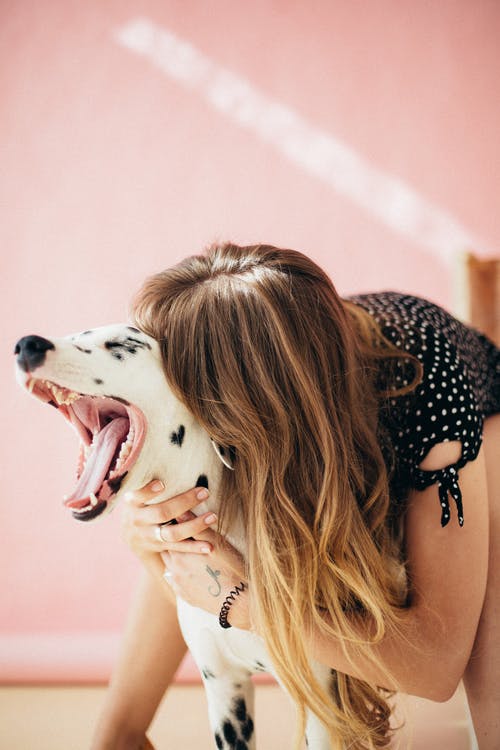 Noise aversion afflicts a great number of dogs and is more common than you might think. Understanding what causes dogs to have anxiety about noise, as well as how you can comfort them throughout this time can do a great deal to enhance the quality of your pet’s life. Noise aversion is most commonly a reaction to loud noises that are unexpected and don’t come in a pattern, such as thunder, fireworks, and gunshots. Some dogs may be predisposed to anxiety about noise, while it can develop later on for others.
Noise aversion afflicts a great number of dogs and is more common than you might think. Understanding what causes dogs to have anxiety about noise, as well as how you can comfort them throughout this time can do a great deal to enhance the quality of your pet’s life. Noise aversion is most commonly a reaction to loud noises that are unexpected and don’t come in a pattern, such as thunder, fireworks, and gunshots. Some dogs may be predisposed to anxiety about noise, while it can develop later on for others.
When this condition is allowed to set in, it will be more difficult to treat. Providing excellent treatment for your dog can go a long way toward protecting the comfort of your pets. The excessive behaviors can result in damage to your property, as well as injury to you or your pet. Your pet can’t verbally communicate its distress to you, so it is important to pay attention to your pet and familiarize yourself with the signs of anxiety. If you are ever concerned about your dog’s wellbeing, you should contact us at Skyline Animal Hospital.
Noise Anxiety in Dogs
Noise anxiety, or aversion, is when a dog experiences fear due to certain noises. No one likes to be anxious all the time, so noise aversion can significantly impact the quality of a pet’s life. Additionally, the behaviors that dogs engage in when exposed to sounds that make them anxious can be destructive and even dangerous. Generally anxious dogs are more likely to develop aversion to noise. If your dog regularly displays shy or anxious behavior, there is a good chance that they will develop noise anxiety at some point. They may be more likely to bite, as well as attempt to flee, which can put them in dangerous situations. The appropriate treatment for the condition will depend primarily on the severity of the anxiety.
What Causes Noise Aversion
Some kinds of dogs are naturally predisposed to develop noise aversion. This happens most often with herding dogs, as well as some working dogs, like German Shepherds. Hunting dogs are often exposed to these noises, so they tend to be more relaxed around loud noises than other species. Dogs that maintain an anxious state for a longer period of time will be likely to develop aversion to loud noises. Lack of habituation is another common cause of noise anxiety. This means that the dog is not regularly exposed to these noises, so it exhibits signs of distress when it is exposed to them.
Socialization can also create anxiety around noises. If a dog is anxious with loud noises, it can teach another dog to be frightened of the same sounds. A stressful event can cause a dog to become nervous around particular sounds. Repeated exposure to certain sounds may similarly cause a dog to develop mild to extreme reactions of anxiety to the sound. In addition, pain can cause dogs to be more susceptible to noise aversion, as well as more likely to lash out when they are experiencing negative feelings.
Signs of Aversion to Noise
Your dog can’t tell you when they are anxious or unhappy. By knowing the signs and symptoms of anxiety, you will be able to provide the appropriate treatment when your dog is feeling anxious. Certain anxious behaviors can be destructive and obvious, like digging, chewing, or running away. Other symptoms may be more difficult to detect, but are just as telling. An anxious dog may vocalize their anxiety by either whining or barking. Other signs may include trembling, shaking, pacing, excessive panting, hiding, frequently licking their lips, yawning, immobility, a furrowed brow, and ears that are pulled back.
A dog that is anxious may seek out your company or seem to be more clingy than usual. They may also seem uninterested in eating, particularly if they are experiencing severe amounts of anxiety. Uncontrollable urination may also indicate that your dog is feeling anxious. Ensure that you remain aware of your dog’s behaviors so that you can provide effective comfort and care when your dog is experiencing anxiety. This can also help you to determine the triggers of your dog’s anxiety, which will go a long way toward helping you to limit these triggers.
Possible Treatments
There are many ways that you can try to comfort your dog when they experience noise-related anxiety. It is absolutely vital to ensure that your dog is in a safe place when they are experiencing anxiety. Failure to provide a secure location may result in your pet fleeing or injuring themselves. Distracting your pet may help with the noise anxiety, but it is most effective when it is done in the early stages. Playing with your dog may help distract them from the sound that makes them anxious. However, pay attention to how your dog reacts during play time. If they are easily distracted during this time, they are likely still feeling anxious. You may want to stop playing with them, so that they don’t associate the game with feelings of anxiety.
Exposing them to the sound may help to reduce their fear of the sound. However, it is vital to ensure that this is done in a controlled environment and that you do not force them to be exposed to the sound. Start by playing the sound at a low volume that doesn’t cause them anxiety. If it seems to upset them, turn it off. While playing the sound, you can give them treats to associate positive feelings with the sound. Slowly increase the volume of the sound until they can listen to it at louder volumes without it causing anxiety. Other tools can be implemented to calm the dog during exposure to the sound. Thunderjackets, earmuffs, and even medications can help to alleviate your pet’s fear while being exposed to the sound.
Contact Us Today
Even if your pet engages in destructive behaviors when they are anxious, it is vital to ensure that you don’t punish them for it. Positive reinforcement will be far more effective, while punishment can compound their negative emotions. To learn more about helping your pet that has noise aversion, contact our professionals at Skyline Animal Hospital today!


